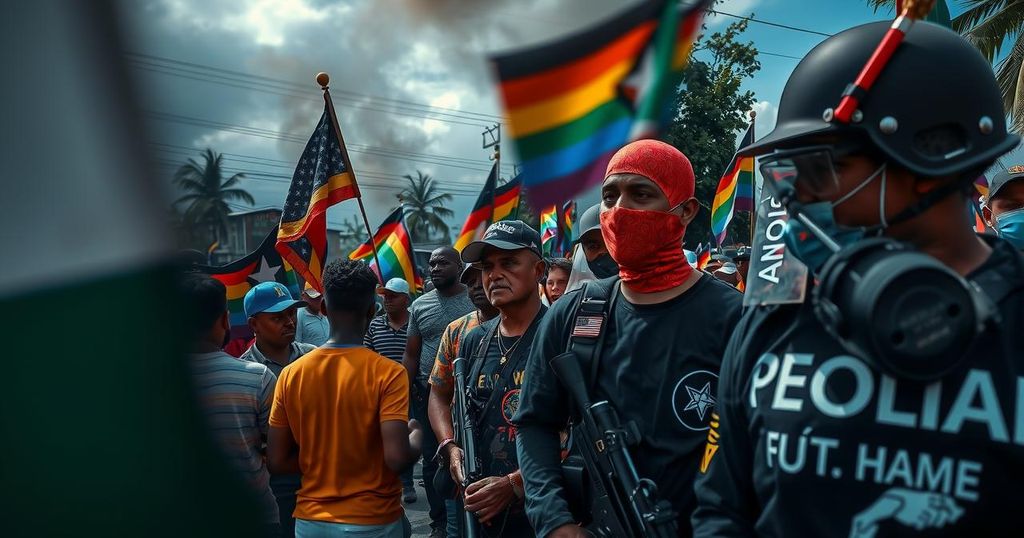In May 2023, riots in Pikin Saron led to the deaths of two Indigenous men and the subsequent trial of six suspects. Indigenous Collective Suriname (IKSur) demands their release, citing ongoing discrimination and failures to address the community’s grievances under Surinamese law. The government faces criticism for labeling the suspects as “terrorists” while ignoring calls for an independent investigation into police actions.
On Friday, the Indigenous Collective Suriname (IKSur) urged for the release of six individuals currently on trial related to the riots that occurred in Pikin Saron in May 2023. The riots were a response to dissatisfaction among the Kaliña Amerindian tribe regarding their treatment by the Surinamese government, culminating in a violent confrontation that led to the deaths of two Indigenous men during a police shootout. IKSur’s chairman, Lloyd HF Read, emphasized ongoing discrimination against indigenous communities, highlighting their lack of land rights and the continuous exploitation of their territories by government-affiliated interests. Additionally, Read referenced the international condemnation faced by Suriname following the Kalina Lokono verdict, which criticized the government’s failure to uphold the rights of the Kalina and Lokono peoples. Despite the court’s ruling mandating consultation with these communities concerning land rights, little progress has been observed. The IKSur criticizes the Surinamese authorities for prioritizing prosecutions of the suspects over addressing the murders of the two Indigenous individuals, urging for a thorough investigation into the tragic events of May 2, 2023. The suspects have endured 1.5 years of pre-trial detention under questionable conditions, with multiple attempts for provisional release being denied. In its statement, the IKSr condemned the labeling of the six men as “terrorists” as a tactic to manipulate public perception and called for equal treatment and justice for Indigenous populations. The collective also requested support from civil organizations to advocate for their rights, inviting the Supreme Judge to facilitate a fair trial based on established facts.
The unrest in Pikin Saron, Suriname, was a response from the Kaliña Amerindian tribe to perceived injustices and discrimination from the government. The Indigenous Collective Suriname (IKSur) highlights the ongoing struggles faced by Indigenous communities in terms of land rights and governmental neglect. In 2015, an international ruling condemned Suriname for violating the rights of the Kalina and Lokono peoples, yet much of the government’s actions remain unchanged. The situation is further exacerbated by the unresolved murders of two Indigenous men during riots against police actions, leading to calls for an independent investigation that remains unaddressed.
In summary, the Indigenous Collective Suriname is advocating for the release of six men charged in connection with the May 2023 riots as a reflection of broader systemic issues faced by Indigenous communities in Suriname. The calls for justice emphasize narratives of discrimination and exploitation by the government, alongside a demand for fair legal treatment. The ongoing neglect concerning the investigation into the deaths of two Indigenous men has underscored the urgent need for reform, accountability, and the recognition of Indigenous rights within Surinamese society.
Original Source: caribbean.loopnews.com






